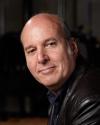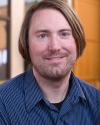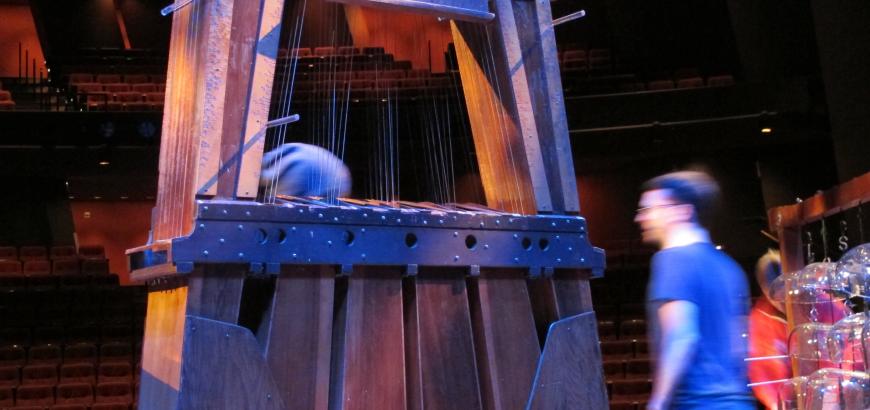Twentieth century American composer Harry Partch created an original musical world and hand-hewn instruments on which to perform his microtonal compositions, which continue to inspire and influence musicians and composers today. This festival celebrates the music and influence of this unique composer, whose collection of hand-made musical instruments are in long-term residence at the UW under the curatorship of composer and Partch scholar Charles Corey.
Programs include premiers of new works composed for Partch’s instruments as well as rarely or never-before performed works from the composer’s archives. Other activities, including master classes, demos, and talks, complete this homage to a uniquely American artist.
Program Details
Friday, May 11
2 pm, Lecture, Music Building Room 213:
Charles Corey presents "Issues in Analysis and Realization of the Music of Harry Partch"
7:30pm, Concert No. 1, Meany Theater
Works by Partch, Karpen, Knox, Schneider, Watras
Greek Studies: Harry Partch
Crystal Paths: Garth Knox
On Listening to Lu Tzu: John Schneider
String Masks: Melia Watras
INTERMISSION
Ode: Richard Karpen
Saturday, May 12
10:30 a.m., Concert 2, UW Tower Auditorium:
Charles Corey presents the Complete Works for Adapted Guitar and Intoning Voice
(FREE ADMISSION)
Barstow: Harry Partch
December 1942: Harry Partch
Come to Dust: Charles Corey
U.S. Highball: Harry Partch
2 pm, Symposium Session, Music Building Room 213
FREE ADMISSION
Andrew Granade: "Going Home: The Persistence of Partch's Hobo Persona"
Paul West: "Pythagoras, Plato and Partch: Breaking the Chains of a Theoretical Art Form"
Stephanie Liapis: "Castor & Pollux: a Movement Score"
7:30pm, Concert 3, Meany Theater
Satire and Sincerity
Y.D. Fantasy: Harry Partch
Pneuma: Wei Yang
The Rose, The Crane, The Waterfall: Harry Partch
Commentaries on Creation: Paul West
Dark Brother: Harry Partch
The Wind, The Street: Harry Partch
Ring Around the Moon: Harry Partch
INTERMISSION
The Wayward: Harry Partch
Sunday, May 13
10:30 a.m, Concert 4, UW Tower Auditorium:
Luke Fitzpatrick presents the Complete Works for Adapted Viola and Intoning Voice
FREE ADMISSION
Two Psalms: Harry Partch
Seventeen Lyrics by Li Po: Harry Partch
The Grave of Li Po: Luke Fitzpatrick
The Potion Scene: Harry Partch
2 p.m, Lecture-Recital, Meany Theater:
Sarah Kolat presents a lecture-recital:
"Adapted Voice: Interpreting the Vocal Works of Harry Partch"
FREE ADMISSION
Y.D. Fantasy: Harry Partch
The Potion Scene: Harry Partch
Two Settings from Finnegan's Wake: Harry Partch
7:30 p.m., Concert 5, Meany Theater
"Reflections"
Lover, Soldiers - War - Another War: Harry Partch
Vanity: Harry Partch
Where All That's Solid Melts Into Air: Jeff Bowen
Two Psalms: Harry Partch
In Paradisum: Charles Corey
Yonah's Dream: Mathew Rosenblum
Tulpa: Luke Fitzpatrick
Cloud-Chamber Music: Harry Partch
INTERMISSION
The Wayward: Harry Partch
Tickets: $25* ($10 students/seniors)
*Or purchase general admission tickets for all three evening performances for $60 with promo code: "BUYALL3FOR$60"
Artist Bios

Richard Karpen (b. New York, 1957) is a composer and researcher in multiple areas of music and the arts. His compositions for both electronic media and live performance are widely known, recorded, and performed internationally. Since the early 1980s he has also been in the forefront of the development of computer applications for music composition, interactive performance, and the sonic arts. He is also active as pianist.
Karpen is a Professor of Digital Arts and Experimental Media (DXARTS) and Music Composition at the University of Washington in Seattle. Also at the UW he was founding Director of DXARTS in 2001 and Director of the School of Music from 2009-2020. He has been the recipient of many awards, grants, and prizes, including those from the National Endowment for the Arts, the Bourges Contest in France, and the Luigi Russolo Foundation in Italy. Karpen has composed works for many leading international soloists, such as soprano Judith Bettina, violists Garth Knox and Melia Watras, trombonist Stuart Dempster, flutists Laura Chislett and Jos Zwaanenberg, guitarist Stefan Östersjö, and ensembles such as The Six Tones, JACK Quartet, The Seattle Symphony, and the Harry Partch Ensemble. Karpen is a founding member, with Cuong Vu, of the experimental improvisation ensemble Indigo Mist. As a pianist, Karpen has performed and recorded with Cuong Vu, Bill Frisell, Ted Poor, Steve Rodby, and others. Karpen's compositions and performances have been recorded on a variety of labels including Wergo, Centaur, Neuma, Le Chant du Monde, DIFFUSION i MeDIA, Fleur du Son, Capstone, and RareNoise.

Melia Watras has been hailed by Gramophone as “an artist of commanding and poetic personality” and by The Strad as “staggeringly virtuosic.” As a violist/composer/collaborative artist, she has sustained a distinguished career as a creator and facilitator of new music and art.
In the 2025-26 season, highlights include performances of world premieres: works written for Watras by composers Mary Kouyoumdjian and Ha-Yang Kim, as well as her new solo viola piece to be performed by Anthony Devroye in Paris. A new album of her compositions is slated to be recorded for Planet M Records.
Watras’s much-lauded work as a recording artist spans nearly three decades. Her latest album, of her composition The almond tree duos, was recognized by Bandcamp Daily as being among the best contemporary Classical music of the month. Berlin-based music magazine 15 Questions called the duos “pure, poignant, powerful in their immediacy.” The WholeNote notes that her recording Play/Write “unfolds an exquisite world in which beauty and dreams flirt with sorrow.” String Masks, a collection of her own compositions including the titular work which utilizes Harry Partch instruments, was praised for “not only the virtuoso’s sensitive playing, but also her innovative and daring spirit,” by the Journal of the American Viola Society. Textura hailed her compositional debut album, Firefly Songs, for “distilling rich life experiences into strikingly original musical form.” Schumann Resonances was described by the American Record Guide as “a rare balance of emotional strength and technical delicacy,” with The Strad writing of 26 “a beautiful celebration of 21st century viola music.” Ispirare made numerous Best of 2015 lists, including the Chicago Reader’s (“Watras knocked the wind out of me with the dramatically dark beauty of this recording”). A Seattle Times Critics’ Pick for Short Stories, the newspaper marveled at her “velocity that seems beyond the reach of human fingers.” Strings praised her “stunning virtuosic talent” in her debut solo CD, Viola Solo, and declared her second release, Prestidigitation, “astounding and both challenging and addictive to listen to.”
Watras’s compositions have been performed in the US cities of New York, Chicago, Los Angeles, Seattle, Bloomington (IN), and countries including Denmark, Spain, Switzerland, and Wales. She has been commissioned by the American Viola Society, the Avalon String Quartet, violinists Tekla Cunningham, Mark Fewer, Rachel Lee Priday and Michael Jinsoo Lim, violists Anthony Devroye and Rose Wollman, cellist Sæunn Thorsteinsdóttir, pianist Cristina Valdés, accordionist Jeanne Velonis, with works performed by violist Atar Arad, singer Galia Arad, pianist Winston Choi, Harry Partch Instrumentarium Director Charles Corey, violinists Manuel Guillén and Yura Lee, vocalist Carrie Henneman Shaw, percussionist Bonnie Whiting and the ensemble Frequency. Her music has been heard on National Public Radio’s Performance Today and can be found on the albums The almond tree duos; Kinetic; Partita Party; Play/Write; String Masks; 3 Songs for Bellows, Buttons and Keys; Firefly Songs; Schumann Resonances and 26. Watras’s adaptation of John Corigliano’s Fancy on a Bach Air for viola, which she recorded for her Viola Solo album, is published by G. Schirmer, Inc.
For twenty years, Watras concertized worldwide and recorded extensively as violist of the renowned Corigliano Quartet, which she co-founded. The quartet appears on 13 albums, including their recording on the Naxos label, which was honored as one of the Ten Best Classical Recordings of the Year by The New Yorker.
Melia Watras studied with Distinguished Professor Atar Arad at Indiana University, earning Bachelor’s and Master’s degrees and the prestigious Performer’s Certificate. While at Indiana, Watras began her teaching career as Arad’s Associate Instructor, later becoming a member of the faculty as a Visiting Lecturer. She went on to study chamber music at the Juilliard School while serving as a teaching assistant to the Juilliard String Quartet.
Watras is currently Professor of Viola at the University of Washington, where she holds the Ruth Sutton Waters Endowed Professorship. In 2024, the American Viola Society presented Watras with the Maurice W. Riley Award, for her distinguished contributions to the viola as a performer, composer, teacher and leader. She has penned articles for the Journal of the American Viola Society, The Strad (online), Strings and the Juilliard Journal.

Luke Fitzpatrick is a violinist, composer and improvisor. He is a founding member and artistic director of Inverted Space, a Seattle-based new music collective. Recent solo performances include Earle Brown’s Centering with Inverted Space, Alfred Schnittke’s Moz-Art with the University of Washington Chamber Orchestra and Brian Ferneyhough’s Intermedio alla ciaccona in the presence of the composer. His February 2016 performance of Steve Reich’s Violin Phase was performed with a live electronics system developed by Marcin Pączkowski. Additionally, he has performed with Deltron 3030, The Penderecki String Quartet, inauthentica, The Parnassus Project, The Moth, The Argento Chamber Ensemble and the California EAR Unit. His world premiere recording of Vera Ivanova's Quiet Light for solo violin was released on Ablaze Records in 2011. Luke holds degrees from The University of Washington (DMA), California Institute of the Arts (MFA) and the University of Missouri-Kansas City (BM). His principal teachers include Benny Kim, Mark Menzies, Lorenz Gamma and Ron Patterson. He is currently Artist-in-Residence at the University of Washington.

Jeffrey Bowen is a composer of acoustic and electroacoustic music, whose works have been performed by Pascal Gallois, Maja Cerar, Beta Collide, Ensemble DissonArt, and the Luminosity Orchestra, among other ensembles. He was awarded First Prize in the 30th International Composition Competition “Città di Barletta,” and has presented work at the New York City Electroacoustic Music Festival, the Darmstadt Courses for New Music, the International Computer Music Conference, and as a resident artist at the Atlantic Center for the Arts. His work What Will Sound (was already sound), for violin and electronics, was released by Parma Records in 2020, and recent work has been supported by the Jack Straw Foundation and the 4Culture and Artist Trust organizations.
He is currently based in Seattle, where he teaches music theory, composition, and guitar at Seattle University and is co-director of the Inverted Space Ensemble. He holds a BA in composition and guitar performance from Stanford University, and completed a DMA in composition at the University of Washington under Joël-François Durand.


